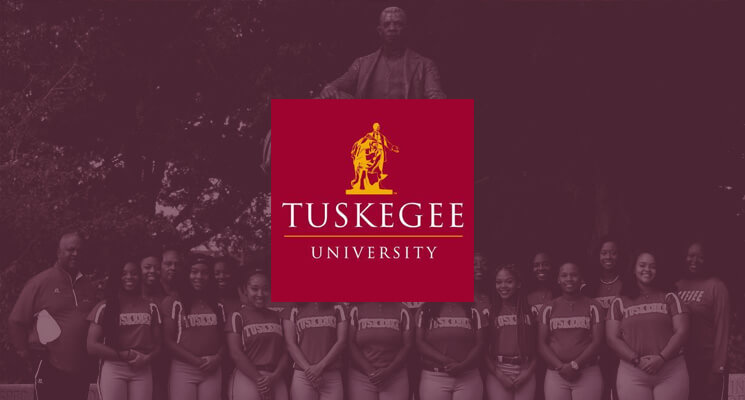Tuskegee’s unique relationship with Liberia dates to 1924, when Charles D. B. King, Liberia’s president at the time, made an official visit to the United States. The work of Tuskegee’s founder and first president, Booker T. Washington, had made a profound impression on the leader.
Since its establishment in 1881 as one of America’s historically black colleges and universities, Tuskegee University has always had strong links to Africa. Tuskegee has a particularly long and rich historical relationship with its sister institution, Booker Washington Agricultural and Industrial Institute of Liberia, in Kakata, Liberia.
Tuskegee’s unique relationship with Liberia dates to 1924, when Charles D. B. King, Liberia’s president at the time, made an official visit to the United States. The work of Tuskegee’s founder and first president, Booker T. Washington, had made a profound impression on the leader. When asked by a reporter to name anything of significance he found in America that he would like to bring to Liberia, King replied that he would like to take what was then called the Tuskegee Institute there.
[quote float:right]“When asked by a reporter to name anything of significance he found in America that he would like to bring to Liberia, King replied that he would like to take what was then called the Tuskegee Institute there.”[/quote]
In 1929, King’s desire for a similar educational institution in his country was made possible with the help of Tuskegee, the Liberian government and the American philanthropist Olivia Phelps-Stokes. After a study and several visits to Liberia, the Phelps-Stokes Fund reached an agreement with the nation’s government to establish an institution that would embrace Washington ideals, such as improving one’s destiny by pursuing education and doing common activities in an uncommon manner. The government supplied 1,000 acres of land in Kakata, 41 miles from the capital, Monrovia, and pledged $5,000 a year for 10 years. The foundation made an initial grant of $10,000 to help finance construction.
During years of civil war and financial crisis in Liberia, the Booker Washington Institute fell into a state of disrepair and was closed at one point. The institute reopened in 1997 and is committed to restoration and continuing to aid the Liberian peace process.
Preparing global leaders
Tuskegee’s current president, Gilbert L. Rochon, is continuing efforts to strengthen ties between the university and Liberia. Since taking over as the university’s president in November 2010, Rochon has worked to promote engagement with the international community and enhancing the global opportunities and perspectives of Tuskegee students.
Establishing “Bringing the World to Tuskegee and Tuskegee to the World” as his platform, Rochon has traveled extensively to share the university’s concepts and goals. He went to Liberia last June to meet with President Ellen Johnson Sirleaf, and he has encouraged study abroad programs for Tuskegee students seeking opportunities to serve communities overseas.
The outreach efforts have been reciprocal. In September 2012, college students and young entrepreneurs from around the world were invited to Tuskegee to learn more about innovation and agricultural production. Representatives from more than a dozen nations attended the Global Youth Innovation Network (GYIN)/Tuskegee University Summit. The event also hosted Mulbah Jackollie, principal of the Booker Washington Institute and Pape Samb, president and CEO of the Phelps-Stokes Fund.
Photos from the GYIN/Tuskegee University Summit
Also in 2012, Tuskegee University established the Division of International Education, Research and Development. Its goal is to intensify collaborative global research and development initiatives with partnering academic institutions, government agencies, private sector firms, non-governmental organizations, multilateral organizations, faculty exchanges and overseas study programs.
Global education is also one of the many goals at the heart of the university’s current capital campaign, “Programmed for Excellence.” At $250 million, this campaign is the largest in Tuskegee’s history.
Tuskegee and Liberia
During his first visit to Liberia, Rochon and a delegation from Booker Washington Institute spoke to President Sirleaf about the longstanding relationship between the university and the technical institute that was named after Tuskegee’s founder. Rochon told Sirleaf that the university would like to be part of efforts to help the institute improve.
Sirleaf expressed disappointment at the negative impact that years of civil war have had on the institute and shared her administration’s plans to restore the school. She said the renewal of relationships between Liberian institutions and organizations abroad is a top priority for her government.
Working together
Tuskegee University has partnerships with universities in several African countries including Burkina Faso, Ghana, Mali, Morocco and South Africa. Rochon would like to extend the opportunity to work together with Liberia as well. He said he will work toward establishing joint research opportunities, student exchange programs and that he will help strengthen architecture programs at Liberian universities.
Sirleaf told Rochon that Liberia is getting support from members of the international community and welcomes future training and exchange program efforts with Tuskegee and other institutions.
For more information about Tuskegee University and its international programs, go to: www.tuskegee.edu. Go to Booker Washington Agricultural and Industrial Institute of Liberia to read more.
Teri R. Sumbry is a writer in the office of communications, public relations and marketing at Tuskegee University.






















